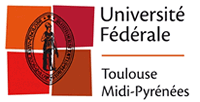About the Project
PhD in Biological Sciences in Toulouse, France.
A fixed-term for 3 years Ph.D. position is open at the University of Toulouse, France. The successful candidate will work at the interface between kidney and cardiovascular disease as part of CaReSyAn H2020-MSCA-ITN-2017 (project 764474) at INSERM Team 12 Renal Fibrosis Lab (http://renalfibrosis.fr/), Toulouse, France.
APPLICATION DEADLINE: July 1st 2018
OFFER STARTING DATE: September 1st 2018
Nephrology, Cardiology, Physiopathology
Project
Chronic renal disease is an increasingly frequent disease in western countries and is associated with high cardiovascular mortality. This condition, known as the cardiorenal syndrome, comprises disorders of the heart, vessels and kidneys. With ~45% of all deaths in chronic kidney disease patients caused by cardiovascular disease, the socioeconomic burden of CRS is extremely high.
Renal function decline in the advanced stages of chronic kidney disease leads to plasma accumulation of retention solutes that are normally excreted by the kidney in the urine. It has been hypothesized that these compounds may, at least in part, be toxic for the cardiovascular system and responsible for chronic kidney disease-associated morbidity and mortality. Many of these toxic retention solutes have not been identified yet and a considerable effort should be made in order to better understand the pathophysiological mechanisms at stake and to prevent chronic kidney disease-associated cardiovascular complications.
Recently, we have identified 200 proteins accumulating in the plasma of chronic kidney disease patients (see Glorieux et al, Nephrol Dial Transplant. 2015 Nov;30(11):1842-52). A number of these proteins appear to be good candidates for displaying cardiovascular toxicity in chronic kidney disease patients.
In this project, at the interface of nephrology and cardiovascular disease, the successful candidate will study the role of the most promising candidate proteins on cardiovascular dysfunction with a focus on vascular smooth muscle cells, cardiomyocytes, inflammation and vascular calcification using in vivo and in vitro experiments.
Qualifications
We seek a highly motivated scientist with a MSc. degree in biology or related fields, be fluent in English and have an excellent university track record.
Abilities
Interpreting scientific literature and incorporation into project and understanding the research process are essential. Organising and prioritising own work and organising research within the project timetable are essential. Maintaining accurate and up to date records are essential.
Attitude & disposition
Following abilities and dispositions are essential: flexible and co-operative; good relationships with staff and to communicate effectively; self-motivated and hardworking; enquiring, critical approach to work; willingness to learn new skills; and willing to travel and go on secondments.
Other circumstances
Willingness to work flexibly in order to achieve project demands and targets as agreed with Supervisor is essential. Able to travel to workshops and for research collaboration in other EU countries with notice is essential.
Application
Please submit your application by email with the usual documents (cover letter, CV, three references, Bachelor and Master’s transcript*) to both project leaders:
Dr Julie Klein
E: [Email Address Removed]
P: +33 (0) 5 31 22 40 76
Dr Joost Peter Schanstra
E: [Email Address Removed]
P: +33 (0) 5 31 22 40 78
* List of courses taken, rank and grades received during Bachelor and Master.
Requirements
Applicants must not have resided or carried out his/her main activity (work, studies, etc.) in France for more than 12 months in the 3 years immediately before appointment under the project; Applicants shall also be in the first four years of their research careers at the time of appointment by the host organisation and have not been awarded a doctoral degree. For more information on Marie Skłodowska-Curie Innovative Training Networks, please see: http://ec.europa.eu/mariecurieactions or read section Additional Information below.
The Research environment
Renal Fibrosis Laboratory:
The Renal Fibrosis Laboratory (RF-lab: http://www.renalfibrosis.fr/ and http://www.i2mc.inserm.fr/index.php/fr/equipes-de-recherche/equipe-12) is interested in the development of renal disease and target organ damage associated to renal disease. We focus on both the early identification of renal disease by diverse omics analyses mostly using urine and on the identification of the molecular determinants responsible for renal disease and its progression. The RF-lab is composed of 18 individuals, both clinicians and scientists with a diverse background to cover the whole range of expertise (from basic-to-translational) necessary for our research.
Institute of Metabolic and Cardiovascular Diseases (I2MC):
I2MC is one of the largest Research Centre in metabolic and cardiovascular diseases in Europe with 15 laboratories and a work force of about 300. Basic scientists and clinicians are working on metabolic risk factors (obesity, diabetes and dyslipidemia) and cardiovascular complications (thrombosis, atherosclerosis, cardiac and renal failure). I2MC combines expertise in cell biology, mouse models and clinical work supported by core facilities in lipidomics, genomics, proteomics, animal phenotyping and cell imaging.
Toulouse:
Toulouse is located in Southwestern France close to the Pyrenees Mountains and Spain with flight and train connections to French and European cities. With more than 100,000 students and praised quality of life, it is ranked as the best place to live and study in France.

 Continue with Facebook
Continue with Facebook

